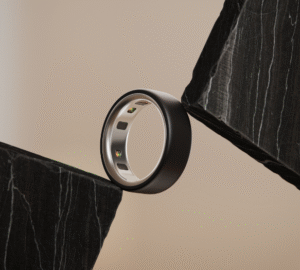Deep sleep, also known as slow-wave sleep, is the body’s most rejuvenating sleep stage. During deep sleep, which occurs in the third NREM (non-rapid eye movement) sleep cycle, your body gets busy repairing and restoring many systems, from your brain to your muscles.
As a refresher, each night your brain takes a rollercoaster ride through the different stages of sleep, which you cycle through four or five times. Each stage of sleep is important for a different reason, but deep sleep is where much of the overnight magic happens for your body and mind.
Keep reading to find out the benefits of deep sleep, how much you should get, and how to get more deep sleep.
READ MORE: What Are the Stages of Sleep?
What Happens During Deep Sleep?
During deep sleep, your body slows way down. Your heart rate and breathing are at their lowest rate, and your muscles are fully relaxed. Your brain’s electrical activity slows down into long, slow waves known as delta waves, hence the name “slow-wave sleep.” It’s difficult to be woken up during this stage — and if you do, you can expect to feel groggy and “out of it.”
Typically, deep sleep occurs within an hour of falling asleep and you usually get more deep sleep during the earlier part of the night. (More on why that matters later!)
How Much Deep Sleep Do You Need?
Research estimates that adults spend about 13 to 23% of their time asleep in deep sleep. Translation: You can expect about one hour to nearly two hours in this regenerative, healing phase. Note that older adults require less sleep overall, so can expect to get less deep sleep as well.
How Do You Know If You’re Not Getting Enough Deep Sleep?
If you frequently wake up feeling less-than-refreshed or groggy, there’s a chance that you’re not getting enough deep sleep. A lack of deep sleep can also result in unwelcome symptoms such as irritability, daytime fatigue, inability to focus, increased hunger, or a short temper.
| Member Tip: In your Oura App, you can check your Sleep Score to see how much deep sleep you’re getting on a nightly basis and check your trends over time. Here’s a helpful guide to learn more about your sleep contributors, including deep sleep. |
Can You Get Too Much Deep Sleep?
“Not really, no. In general, having too much sleep is never really an issue,” says Raphael Vallat, PhD, senior machine learning data scientist at Oura. “For the majority of people, the more deep sleep, the better.”
The only concern would be if you’re getting a lot of sleep and still excessively tired during the day, which could indicate an underlying sleep disorder or health issue, Vallat notes. One example, though it’s very rare, is a condition called idiopathic hypersomnia, in which individuals can sleep more than 11 hours at night and still feel very tired during the day.
What are the Benefits of Deep Sleep?
Compared to REM sleep, deep sleep is the more physically restorative stage of sleep, yet it benefits many of your systems.
Muscle, Tissue, and Bone Repair
Your body rebuilds and repairs bone, muscle, and regenerative tissues during deep sleep. It also increases blood supply to muscles, helping to reduce soreness and fatigue the next day. Studies have shown that a lack of deep sleep decreases muscle mass and is detrimental to bone health. Read more about how sleeps impact muscle growth and recovery here.
Metabolic Health
One study shows that deep sleep helps maintain normal glucose levels, while low levels of deep sleep may contribute to increased risk of type 2 diabetes. Deep sleep also elevates growth hormone, which supports an increase in insulin sensitivity and muscle mass.
Deep sleep can also limit the production of the stress hormone cortisol, an excess of which has been linked to negative health effects, including weight gain and increased risk of dementia.

Energy Production
During deep sleep, your brain replenishes its adenosine triphosphate (ATP) stores. ATP is a molecule that converts energy from food and transfers it to your cells. It’s the primary energy source behind important functions such as muscle contractions and protein synthesis.
Studies show that deep sleep helps your body to recover from fatigue by repairing processes and restoring energy, making it a favorite — and necessary — stage of sleep for active people.
Brain Detoxification
Deep sleep is basically bath time for the brain. In all the 100 billion-or-so neurons firing off all day, your brain creates a substantial amount of waste products, including beta-amyloid and tau — sticky proteins linked to neurodegenerative diseases like Alzheimer’s.
When you’re in the thick of deep sleep, the spine pumps cerebrospinal fluid (CSF) up through the brain stem, effectively cleansing your brain by cleaning out the toxic proteins via the glymphatic system.
Memory Function
Apart from the obvious memory boost that comes with a squeaky-clean brain, the slow waves of deep sleep are thought to retrieve memories from a day and tuck them into long-term storage.
In 2009, UC Berkeley Professor, Matthew Walker, Ph.D., author of Why We Sleep, published a study noting that deep sleep helped to consolidate memories and improve the recall of facts and events.
How to Increase Deep Sleep With These 7 Strategies
Wondering how to get deep sleep? Here are seven science-backed ways to get more deep sleep.
1. Hit the hay earlier.
Because you get more deep sleep earlier in the night, one way to ensure you won’t miss out on deep sleep is to go to bed earlier. Also, try to keep your sleep schedule consistent — yes, even on weekends. Learn how to find your ideal bedtime with Oura here.
2. Get more exercise.
Moderate to heavy exercise has been shown to help increase deep sleep, according to the Sleep Foundation. And contrary to popular belief, the timing of your workout isn’t as important as you may think — if the only time you have to work out is in the evening, it can still help you sleep better. (Just avoid a super-strenuous workout right before bed.
3. Create restful rituals.
One of the ways to get more deep sleep is also the most relaxing. Dr. Rebecca Robbins, PhD, sleep researcher and Oura advisor, emphasizes the importance of creating wind-down rituals that prepare your body for bed, such as drinking a cup of tea, journaling, meditating, reading, or taking a hot bath, shower or sauna before bed.
LEARN MORE: Not Sleeping Well? Here’s Why a Warm Bath May Help
4. Eat more fiber.
Turns out, this nutrient is a deep-sleep whisperer: Research has shown that fiber can help to increase slow-wave activity and duration. Diets high in saturated fat and carbs, on the other hand, can lead to lighter sleep. Include more whole-grains and leafy greens in your diet, and/or try supplementing with fibers like psyllium husk or resistant starch.
| Member Tip: Let Oura Meals unpack how well your choices are fueling you, so you can feel your best each day. Beat cravings and energy slumps, identify nutritional imbalances, and stay on track toward your goals. |
5. Lull yourself to sleep with sound.
Acoustic stimulation has been shown to increase deep sleep. Scientists found that we can bolster our slow-wave sleep activity by matching the frequency and pulses generated in deep sleep.
To recreate this at home, try playing white noise on a white-noise machine or app. If you have the Oura App, choose from a library of peaceful sleep sounds in the Explore content.
6. Learn something new.
There’s evidence that learning a new task can promote deep sleep. Thanks to its cognition-boosting effects, deep sleep also improves whatever skill you learn, too. So it’s a win-win.
7. Stay in the dark.
Any type of blue-light exposure is a potential sleep disruptor – the light creeping in through your blinds, even small indicator lights on your electronics. Many people have found success using blackout shades, placing electrical tape over light sources in a sleep space, or wearing a cozy eye mask during the night. Wearing blue-light-blocking glasses, like the ones from Ra Optics, can also help.
RELATED: 8 Ways to Get More Deep Sleep
About the Oura Expert
Raphael Vallat, PhD, is a senior machine learning data scientist at Oura. He previously worked as a sleep researcher in the Center for Human Sleep Science at University of California Berkeley (Prof. Matt Walker‘s lab). He has published extensively on the topic of sleep and human health, and his work has been featured in several major news media and podcasts. In his free time, you can find him enjoying precious moments with his amazing wife and daughter, playing music, or hiking with friends.











